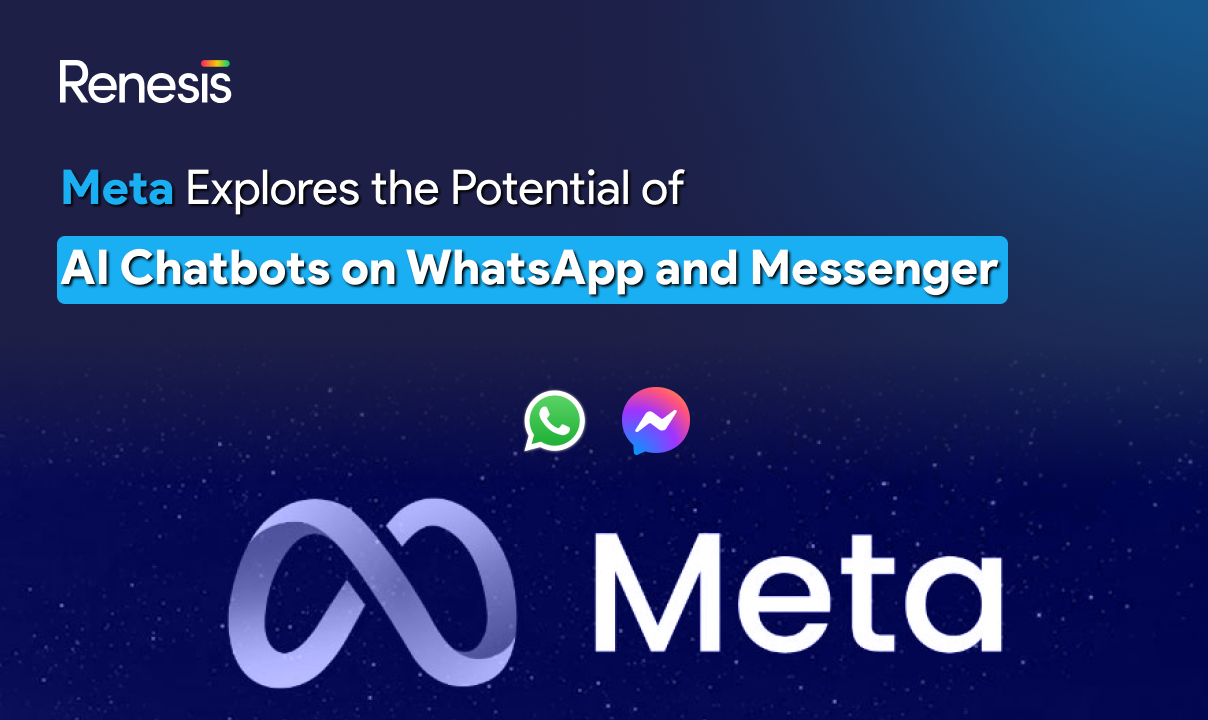Meta Explores the Potential of AI Chatbots on WhatsApp and Messenger
Meta is the latest company to test AI-powered tools for its products. As announced by Zuckerberg, the company is launching a new product group that will integrate generative AI chatbots into its services.
According to a recent announcement by Meta, the company is actively working on developing chatbots that can understand natural language and respond to user queries with personalized recommendations.
These chatbots will be designed to help businesses improve their customer service by providing users with accurate information about products and services.
Meta’s interest in AI-powered chatbots comes as no surprise, considering the growing popularity of messaging apps like WhatsApp and Messenger. With more than 2 billion monthly active users on WhatsApp and 1.3 billion on Messenger, these platforms provide a massive user base for businesses to tap into.
Use of AI Chatbots in Messaging Apps
The use of chatbots on messaging apps has already proven to be successful in various industries, including e-commerce, banking, and healthcare. Chatbots can assist customers with routine inquiries, help them find products or services, and even provide personalized recommendations based on their preferences.
However, the current chatbots on messaging apps still have their limitations. Most chatbots rely on predetermined responses to user queries, and their ability to understand natural language is often limited. This is where AI-powered chatbots come in.
By using natural language processing (NLP) and machine learning (ML) algorithms, AI chatbots can understand user queries and respond with accurate and personalized recommendations. This can improve the user experience and help businesses provide better customer service.
Meta’s AI-powered chatbots could also have implications for the future of advertising. By understanding user preferences and behavior, these chatbots could provide targeted advertising and product recommendations to users, increasing the effectiveness of advertising campaigns.
Despite the potential benefits of AI chatbots, there are also concerns about their impact on jobs. As more businesses adopt chatbots, there is a possibility that customer service jobs may become automated, leading to job losses.
To address these concerns, Meta has emphasized that its AI chatbots are designed to complement human customer service representatives, not replace them. The company has stated that its chatbots will only handle routine inquiries, freeing up human representatives to focus on more complex issues that require human intervention.
In addition to developing AI chatbots, Meta is also working on improving its existing messaging app features. The company recently announced a new feature for Messenger that allows users to share their screens during video calls. This feature could be useful for businesses that need to provide remote support to customers.
Meta’s exploration of AI chatbots on WhatsApp and Messenger is just one example of how the company is leveraging AI to improve its products and services. With its massive user base and access to vast amounts of data, Meta is in a unique position to develop AI-powered technologies that can benefit both businesses and users.
Read the full article here: techcrunch.com










